Old Lijiang, another UNESCO World Heritage Site, does not seem to belong in the same time, or the same country, as Beijing. Old Lijiang was once a stopping point on the Southern Silk Road and the
Ancient Tea-Horse Road (茶马古道, click on the link and look through the photo gallery, it's very cool), a trading path that connected China and Tibet, from Yaan to Lhasa, so China could get horses from Tibet and Tibet could get tea from China.
Old Lijiang's history of 1,000 years is well preserved. Paved paths have not buried the cobblestone. There are no modern or post-modern buildings, just Naxi folk architecture. Machines still haven’t replaced people; much of the items for sale were handmade. It was almost like a time capsule, but with electricity, English signs, and thousands of tourists to feed their huge tourist industry.
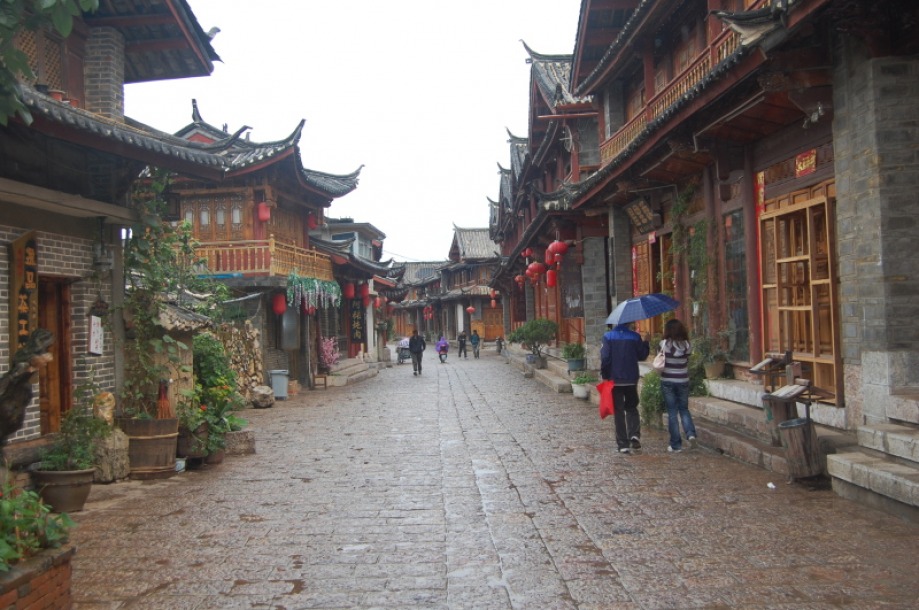
it rained for four days straight
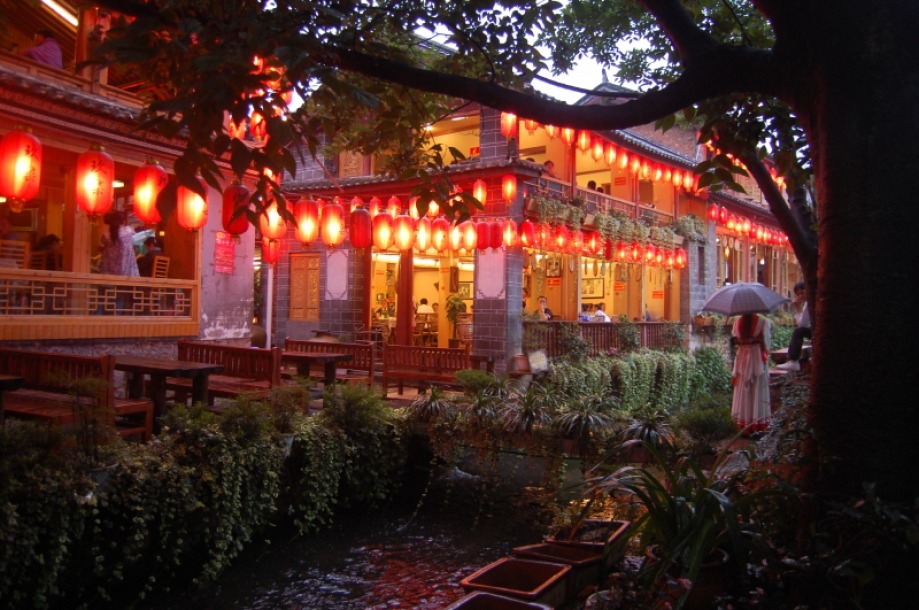
Old Lijiang at night- still raining
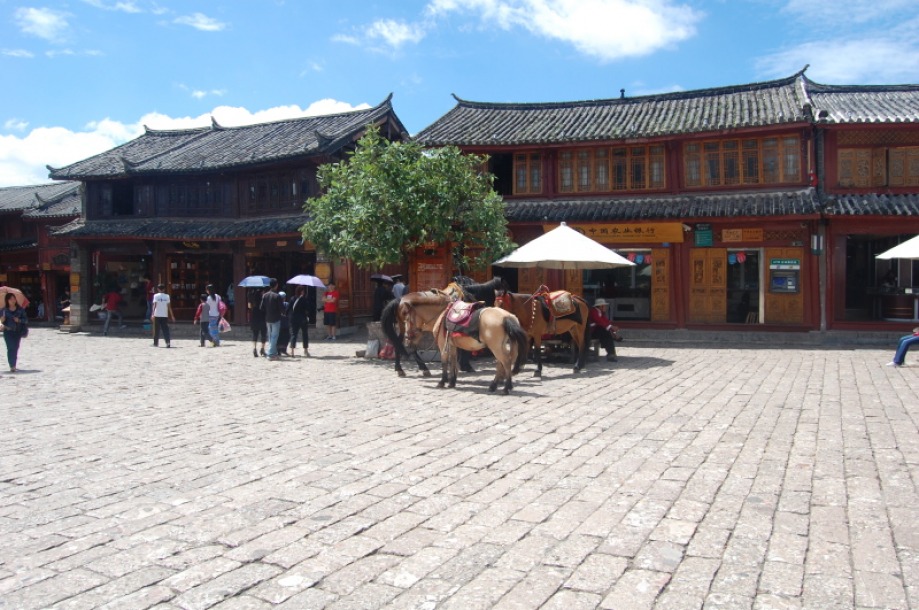
of course on the day we left the rain cleared
The Naxi tribe lives in Old Lijiang. I'm going to take from
my brother's blog here:
[The Naxi] are a minority that have been based in Lijiang for around 1400 years. The Naxi are descendants of ethnically Tibetan tribes and have matrilineal families. The Naxi women pretty much run the show - couples don't live together, and if a man spends the night with a Naxi woman he has to leave before the next morning to go back and work for his mother, any child belongs to the woman, and while the father supports the child and woman, once the relationship between the parents is over so is the support provided by the father, and finally women inherit all property. One thing I really liked was the role of gender in Naxi language, which my guidebook briefly described. The example they give is that when the word 'female' is added to the word 'stone' it becomes 'boulder' but when the word 'male' is added to 'stone' is becomes 'pebble.' Sounds right.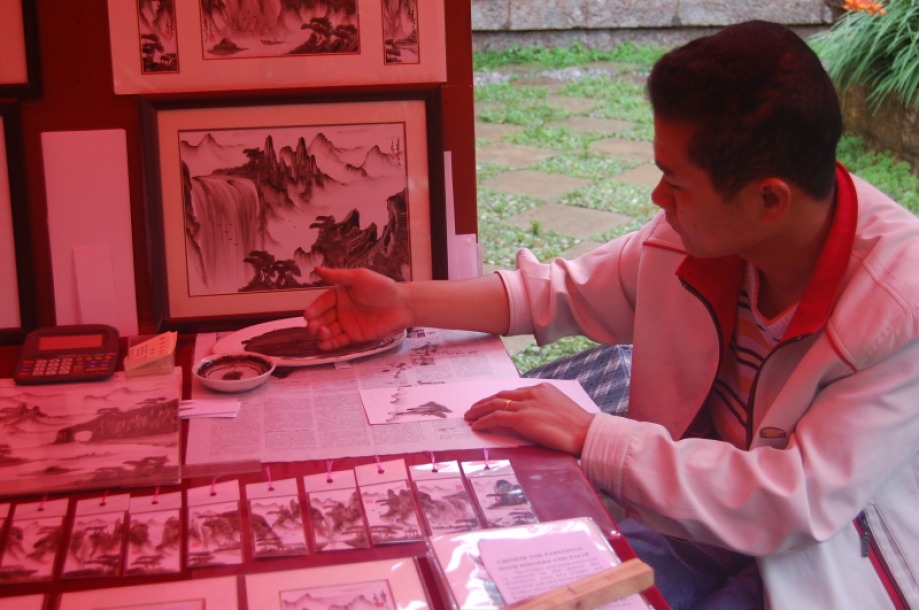
some of the items for sale: finger-palm painting
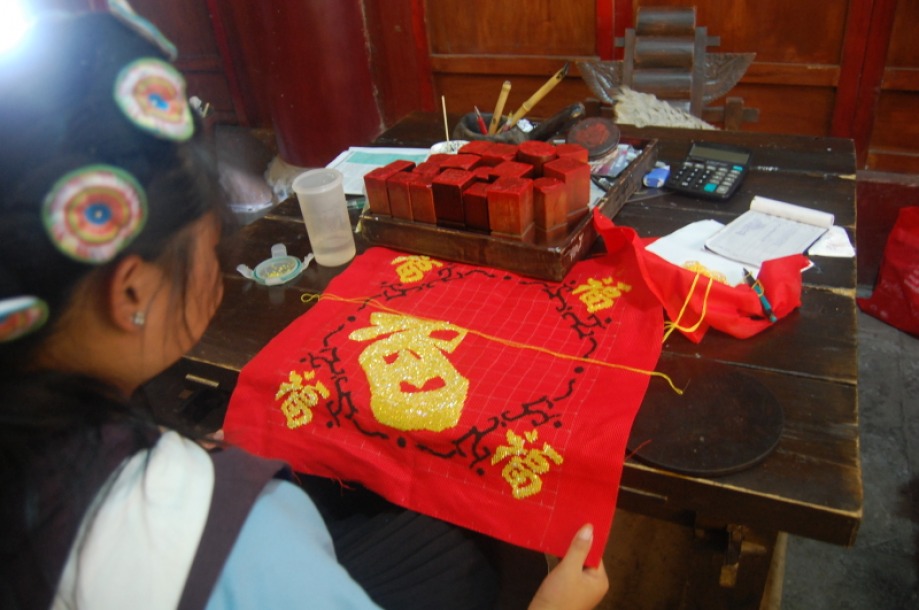
She had been working on this for ten days, and needed twenty more to finish
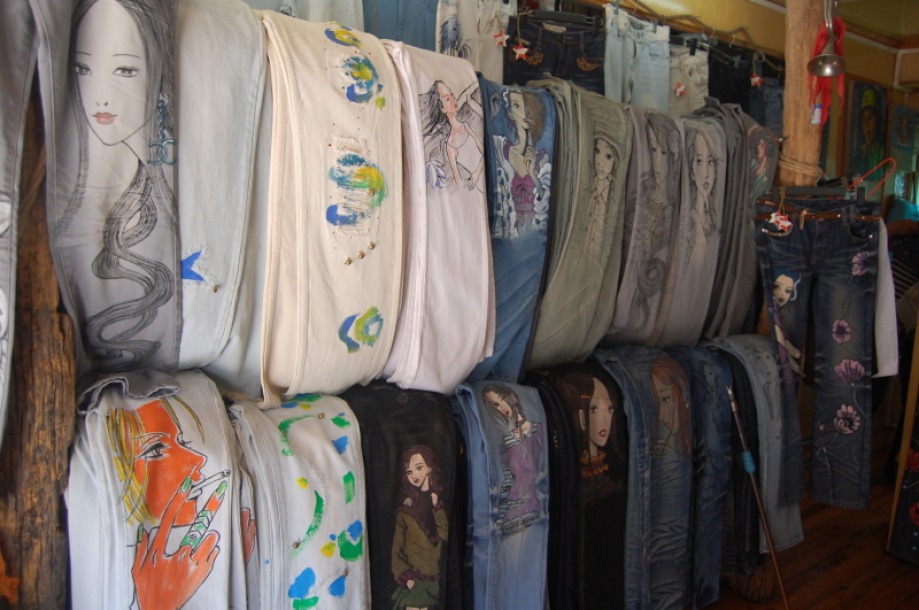
hand painted jeans
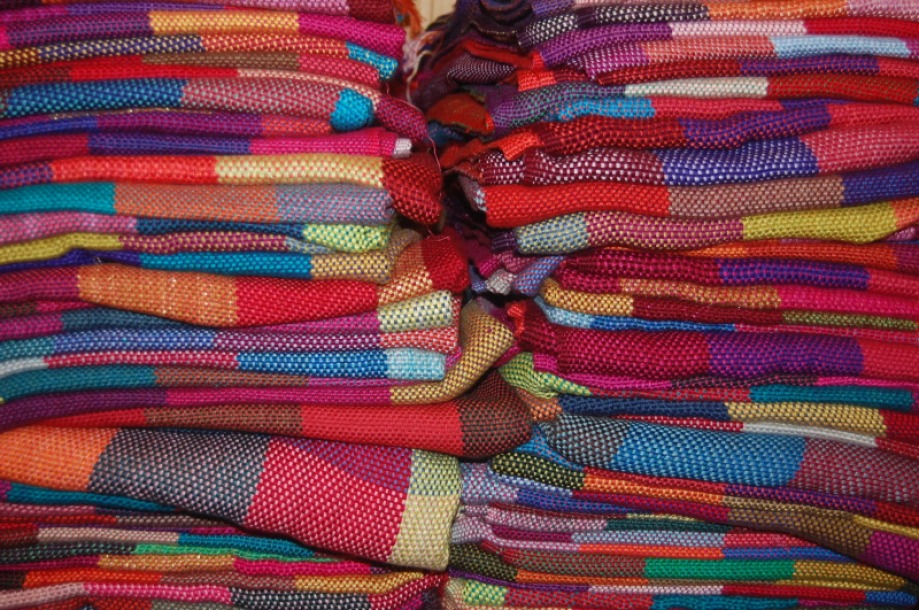
such beautiful handwoven scarves
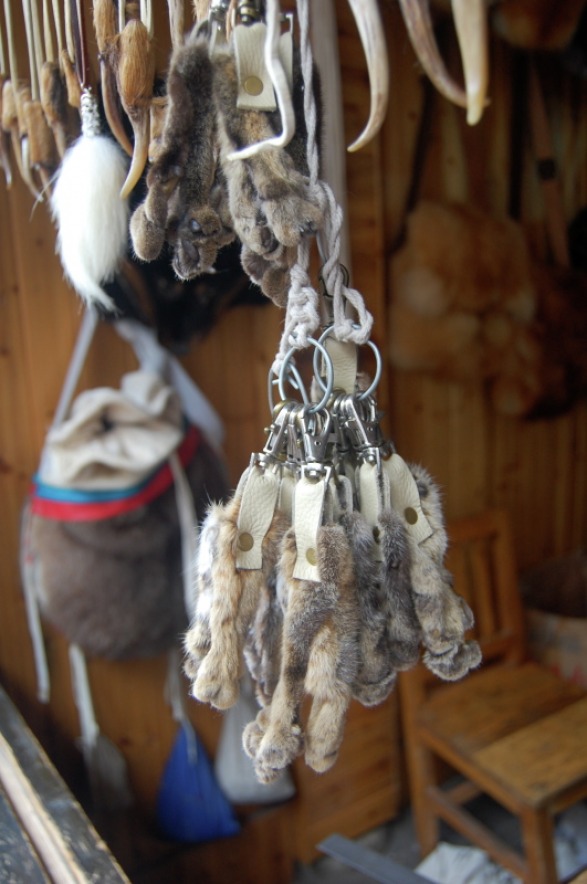
handmade paw clips
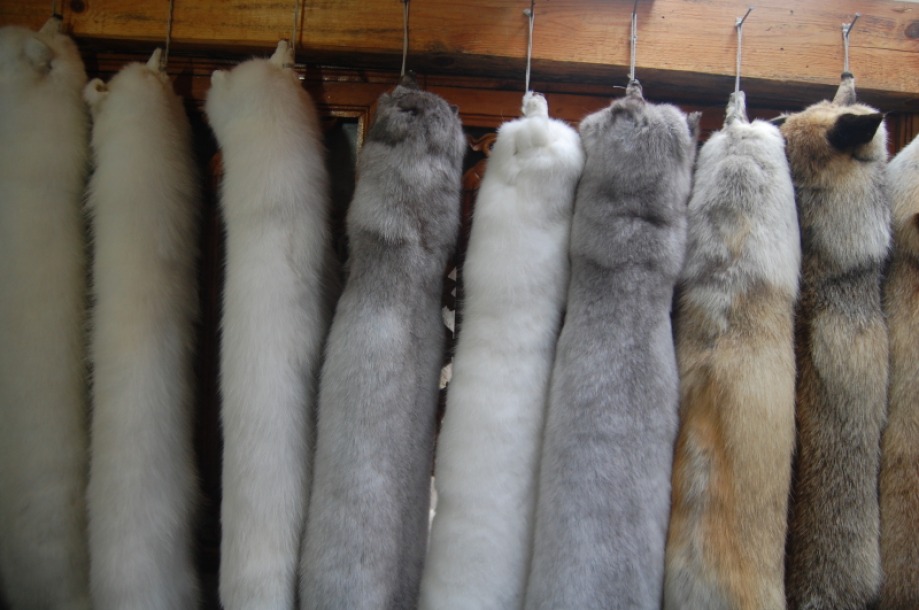
handmade fox scarves
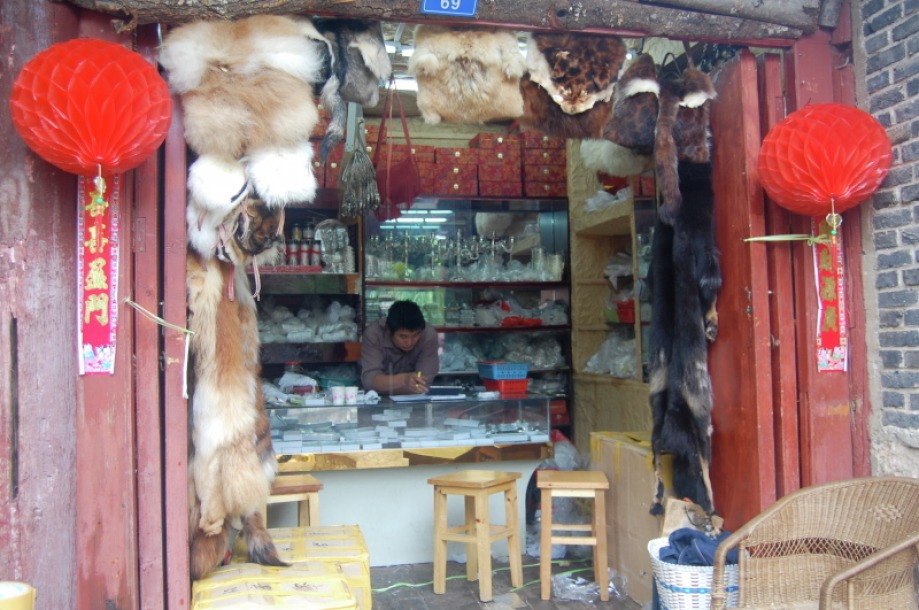
a change of pace from Kunming's handmade dog bags--those hanging are cats
The day after my brother and I arrived, we went to the Black Dragon Pool Park, from which we were supposed to have a great view of the
Jade Dragon Snow Mountain.
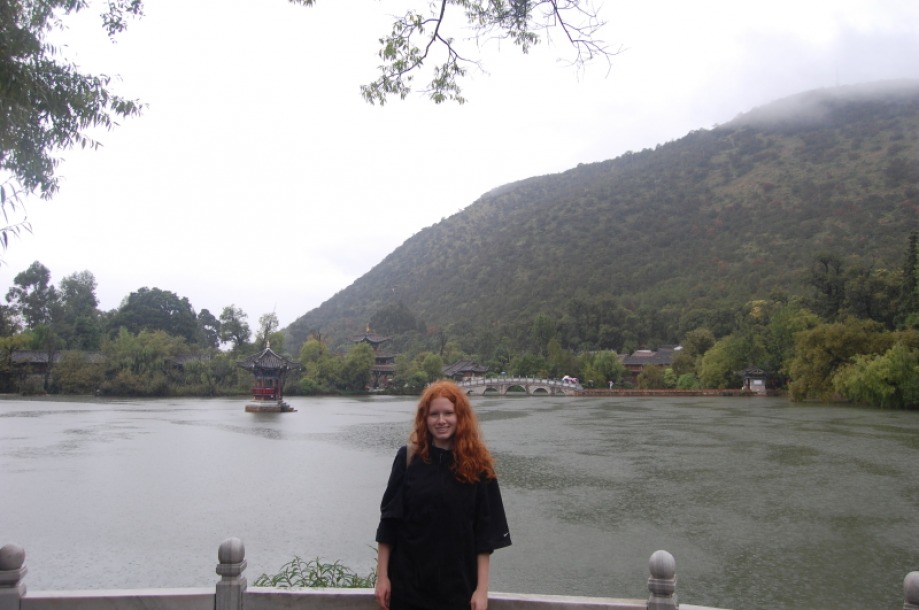
The Jade Dragon Snow Mountain is right behind me. Really, it's there. You just can't see it because of the fog.
After, we went to the Mu Family mansion, the former residence of Lijaing's Naxi chieftans. Almost all of the original buildings, built over 800 years ago during the Ming dynasty, were destroyed during the 1996 Lijiang earthquake. I couldn't tell that these buildings were less than two decades old, though.
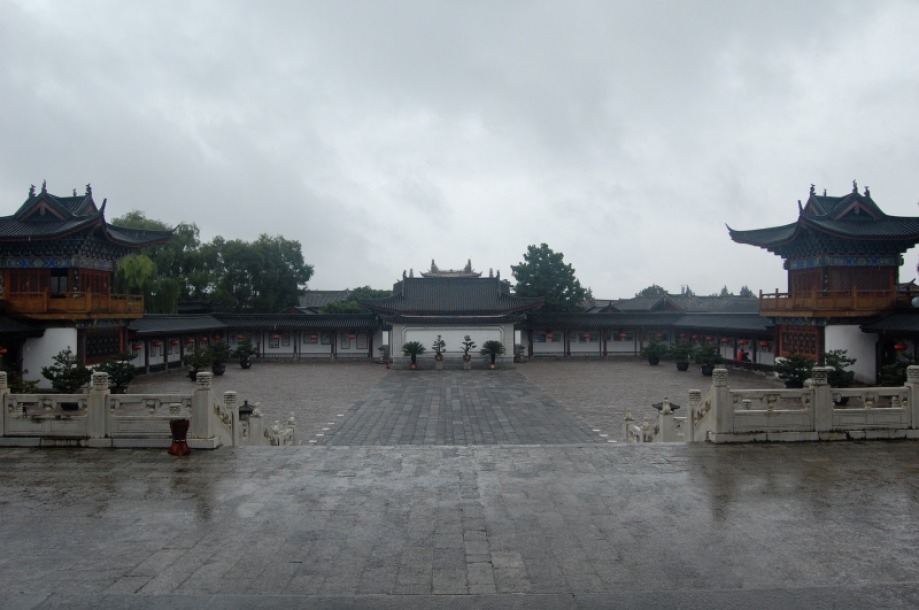
modeled after the Forbidden City
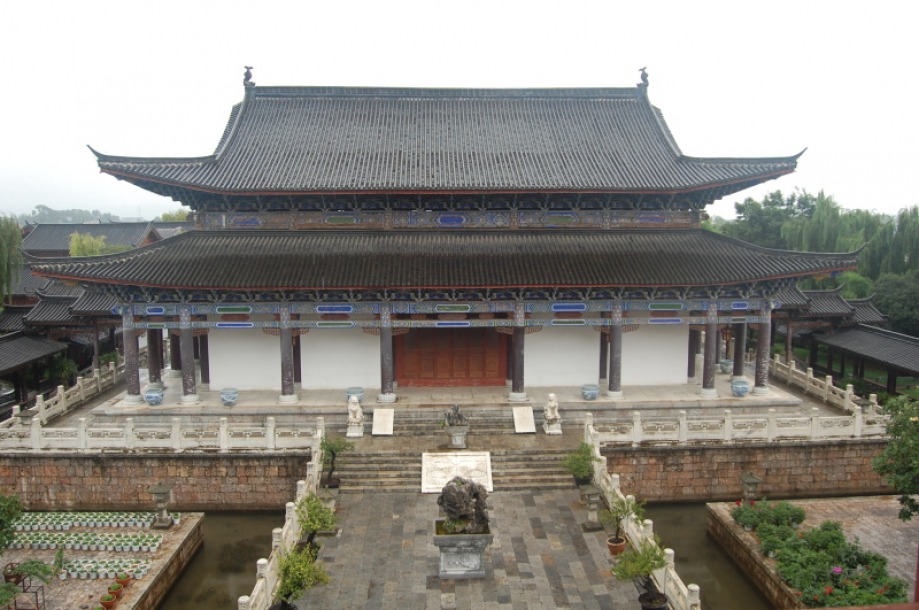
great symmetry
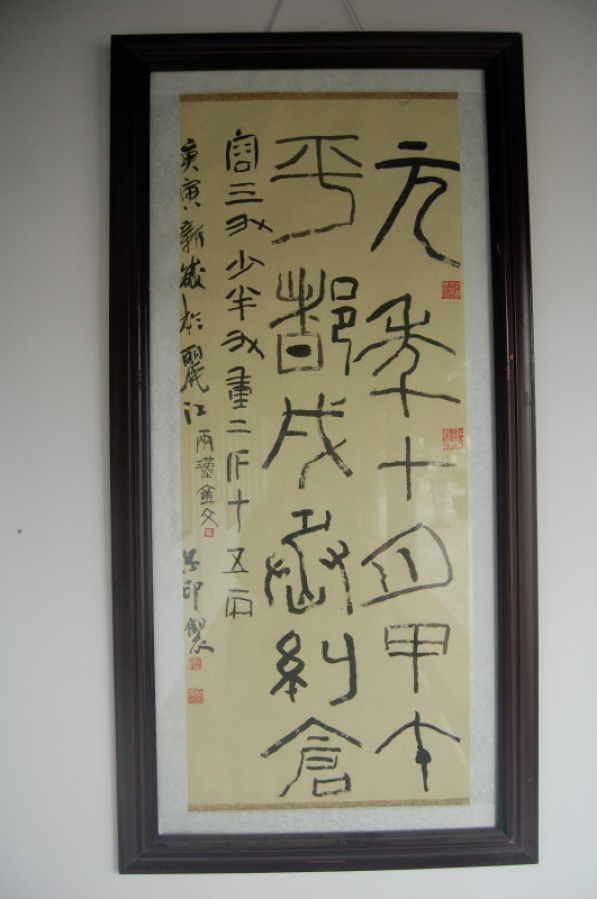
It sucks that Chinese does not have an alphabet, but calligraphy kinda makes up for it
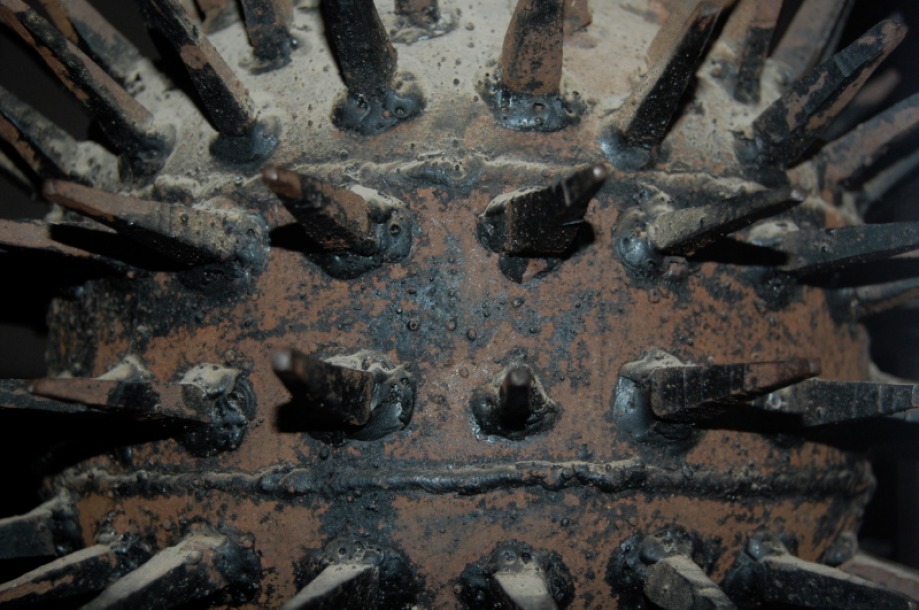
I wonder how many people this killed
At the mansion, I was taking pictures of these performers of Naxi ancient music, and they asked if I wanted to join in.
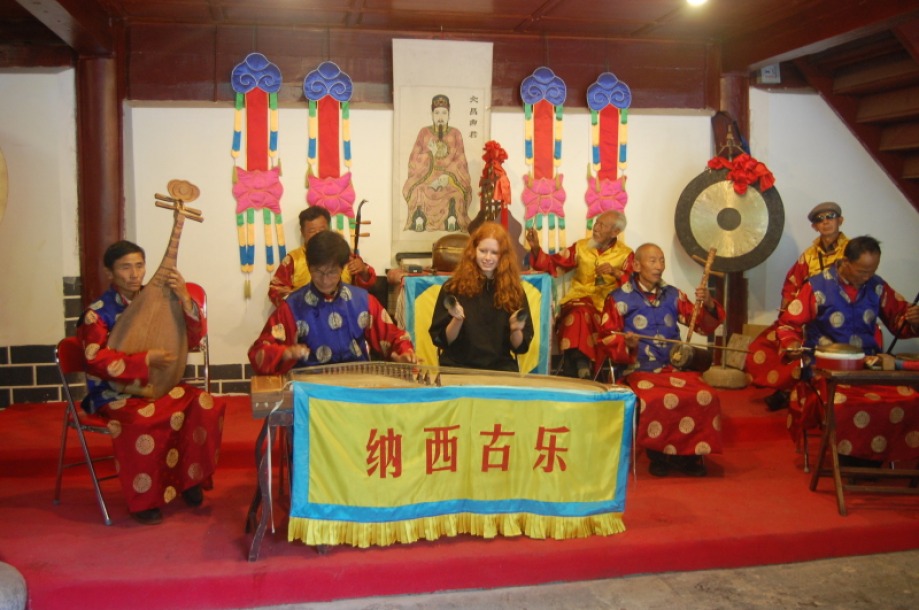
I’m banging my hand cymbals. From left to right the men in the front are playing a pipa (琵琶 or Chinese lute), zhither, and an er hu.
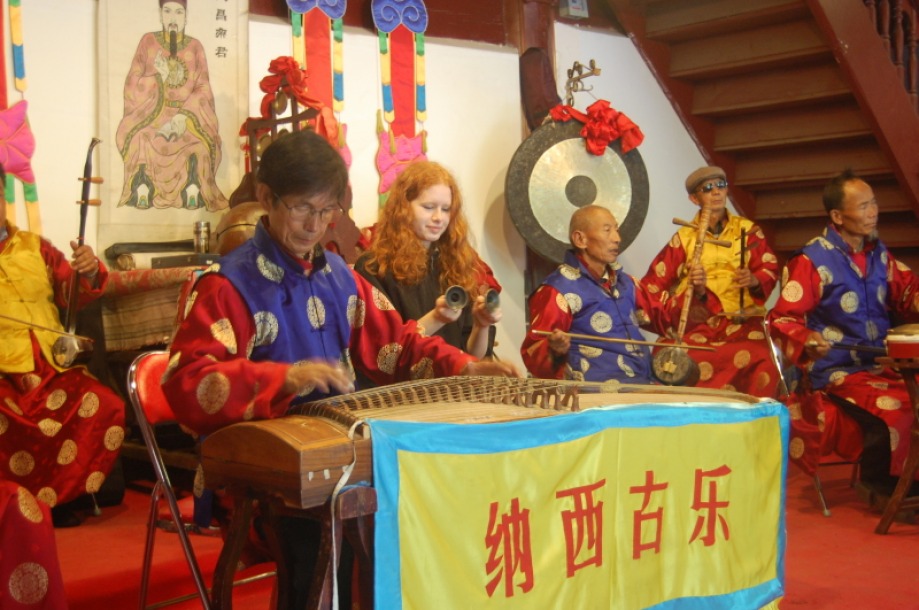
so self-satisfied
After dinner one night, my brother and I walked to one of the main squares. In the center was a bonfire, and soon music began to play. About ten Naxi ladies held hands in a chain and danced by themselves; within a few minutes, two rings formed around the bonfire. The simple steps—cross your legs, tap your feet—reminded me of the Hora. It was a lot of fun to dance with them; unlike my bar and bat mitzvah years, guys actually wanted to dance with me.
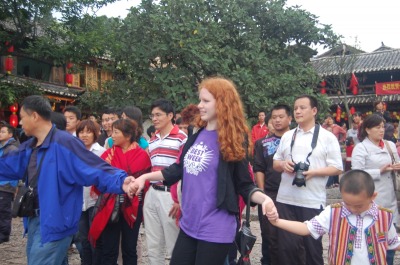
this picture will remain small
On the third day my brother and I took a two-hour bus ride to the Tiger Leaping Gorges, possibly the deepest gorge in the world. Legend goes that at the most narrow part of the gorge (66 feet wide), a tiger jumped from one side of the gorge to the other, hence the name.
As we got up at six for the trip, I napped for most of the bus ride to the gorges. When I woke, it was raining, we were driving up the side of a steep hill, the road had no rail guard, and the driver was talking on his cell phone with one hand and idly holding a cigarette with the other. China, you crazy bitch.
We originally planned to spend two days hiking the gorges, but because of the slippery paths and threat of rain we only spent four hours hiking and returned to Old Lijiang that day.
First, we made a turn where were not supposed to and walked up a steep, muddy and rocky path. Then, we didn’t turn where we should have, and the road ended at a farmer’s house. The farmer stopped what he was doing and lead David and me through the forest to a guest house for lunch. Such a nice guy.
Because of our route, it took us two and a half hours to get from the bus to the guesthouse, while it took only an hour and a half to return on the actual trail. But our path allowed us to see more people, animals, and houses.
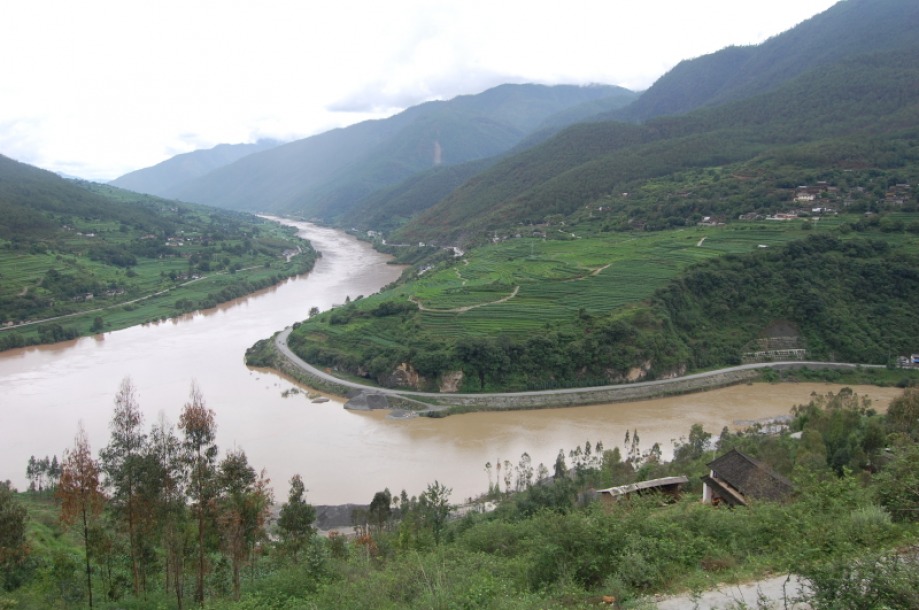
The Yangtze river, the longest river in China and the third longest in the world. It's naturally that color.
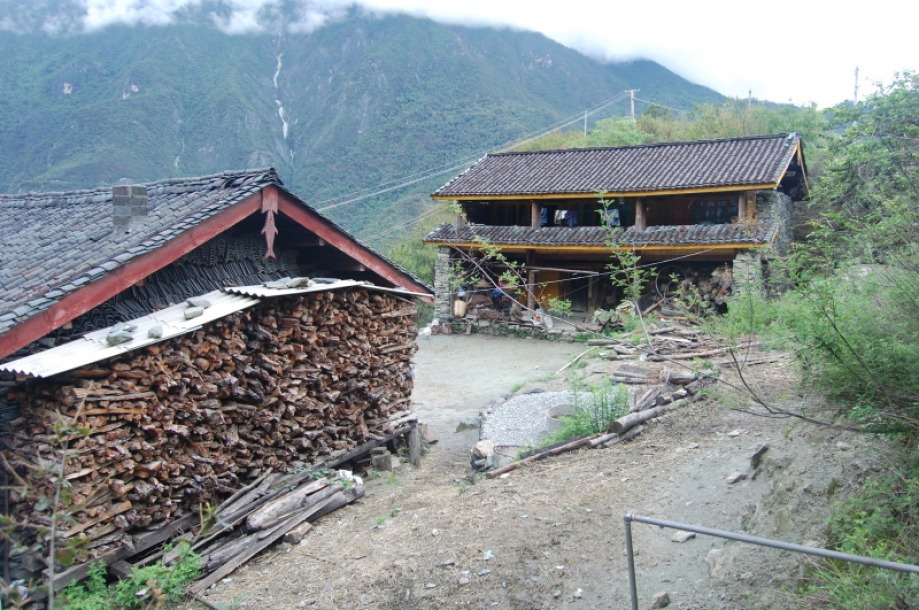
most of the homes had three separate houses: one for storage, one for the animals, and one for the people
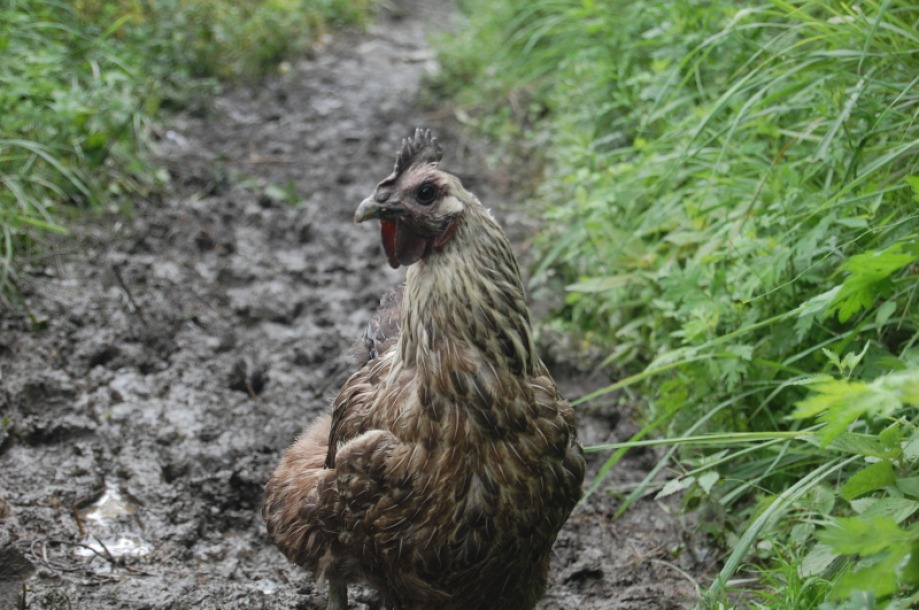
Mr. Rooster, do you hate this mixture of mud and horse shit as much as I do?
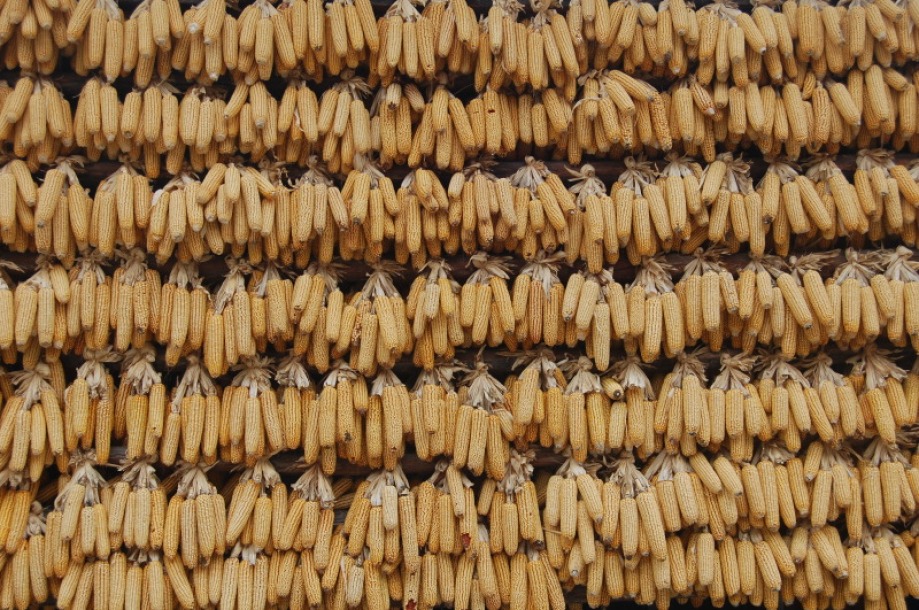
decorations at the guest house where we ate
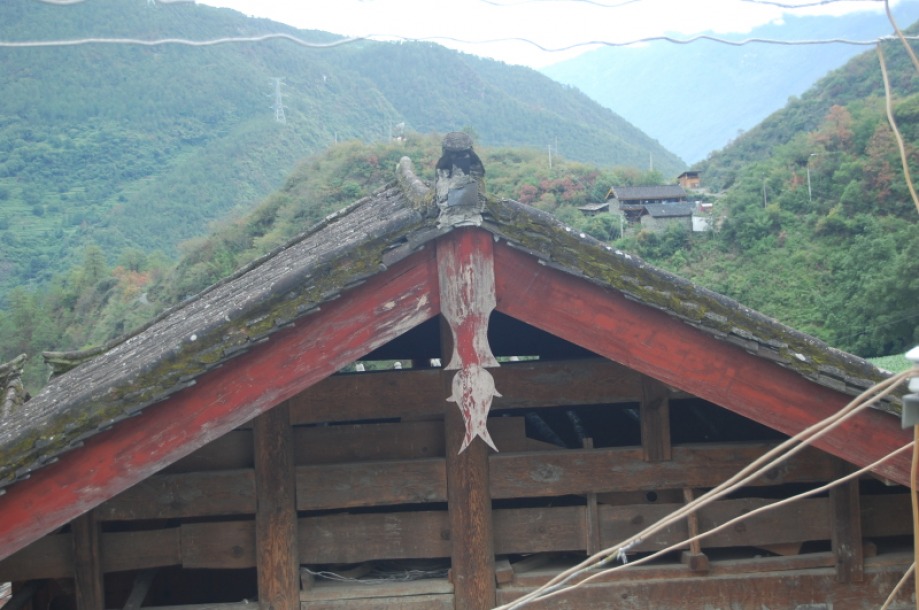
I said to the owner of the guest house, 'This fish is supposed to bring you money, right?' She replied, 'You bring me money.'

















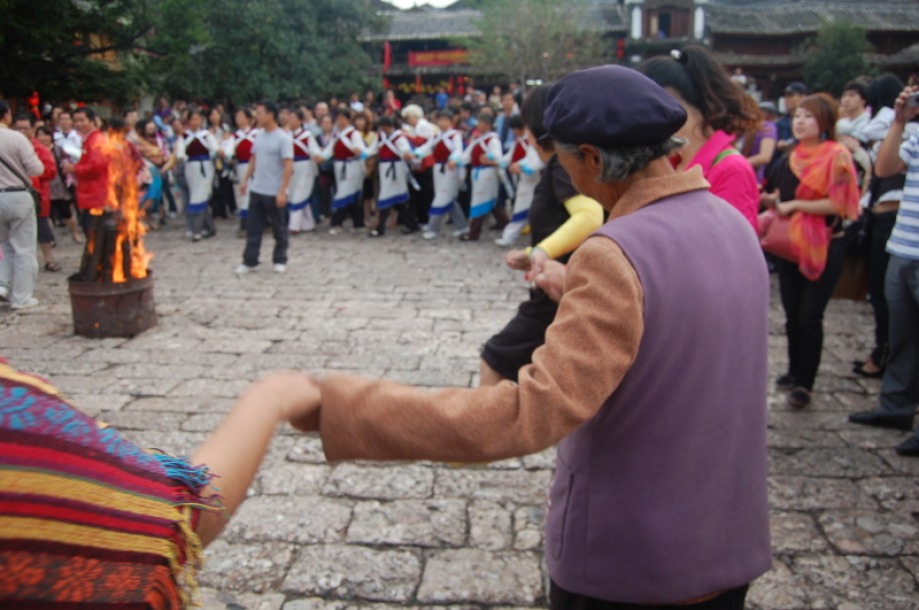




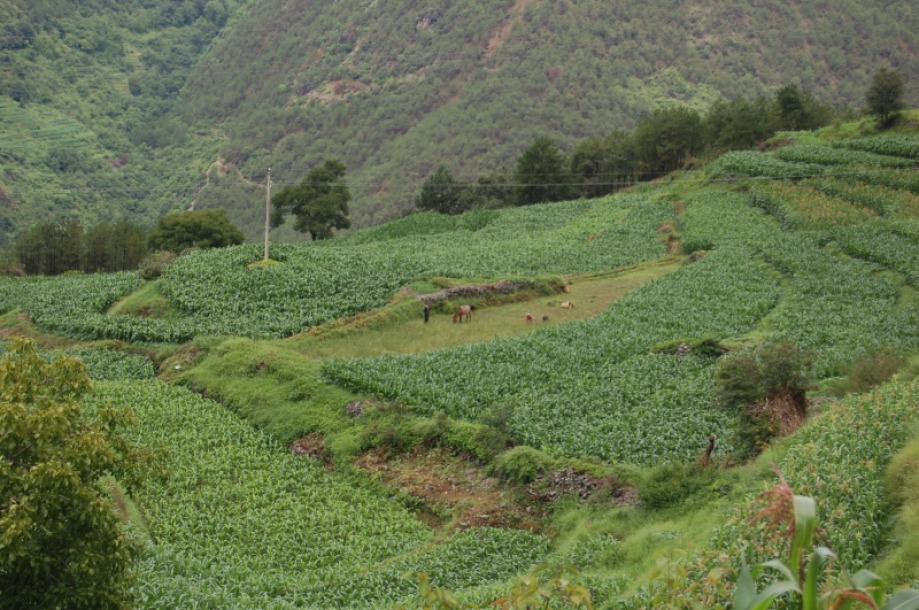
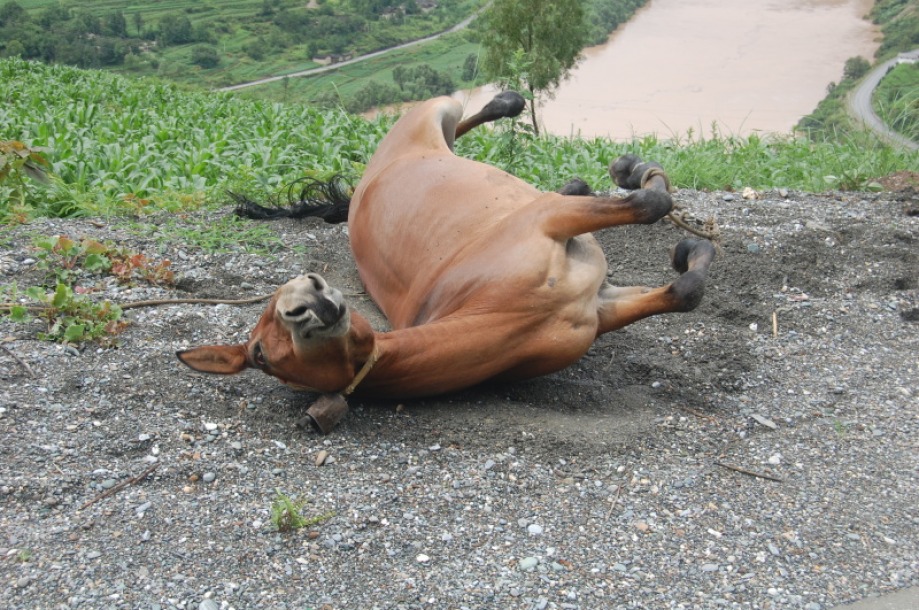
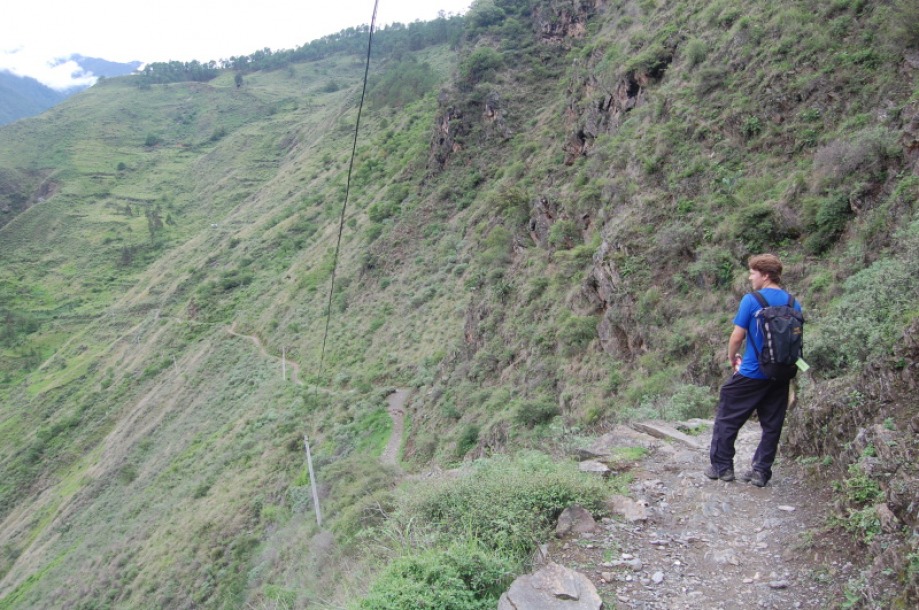
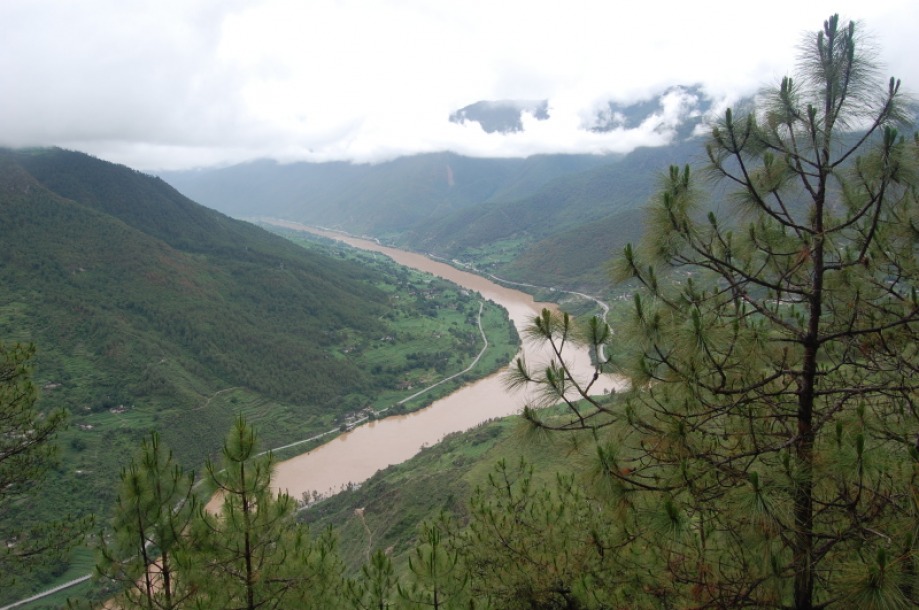


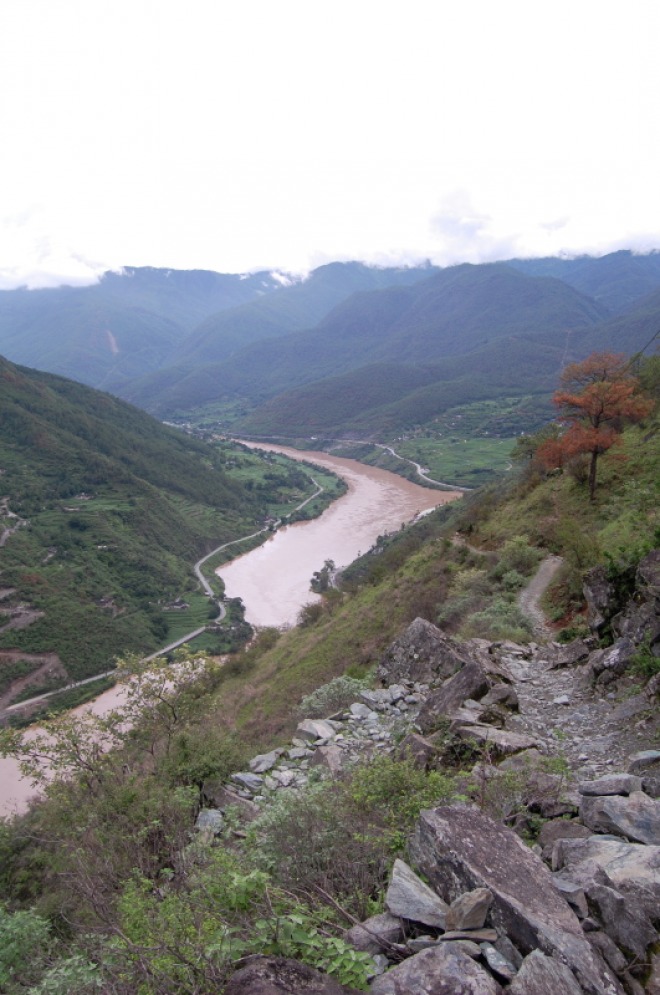
 RSS Feed
RSS Feed